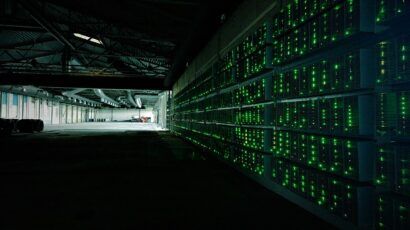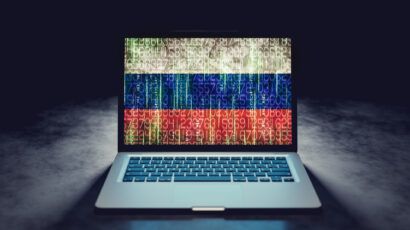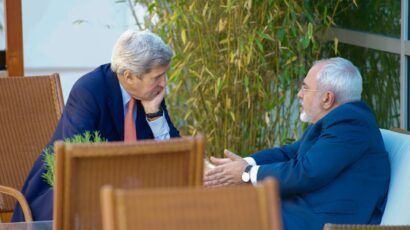Who would use chemical weapons?
By Laura H. Kahn | April 16, 2013
The combatants in Syria are pointing fingers at each other. Syrian officials claim that the rebels used chemical weapons in a March 19th attack against Khan al-Assal, a town near Aleppo; the rebels say the Syrian government was the culprit. Whichever is the case, at least 25 people died and many others were wounded in the assault. The UN has decided to investigate: Secretary-General Ban Ki-moon appointed Swedish scientist Ake Sellstrom, a former weapons monitor for the UN Special Commission on Iraq (UNSCOM), to lead the investigation.
The renewed specter of chemical weapons raises the question of why any leader would use them. This class of weapons not only kills and maims but can also cause birth defects, dooming subsequent generations to permanently disrupted lives. Strategically, these weapons produce lasting enemies and make the perpetrator a pariah, losing both domestic and international support. Chemical weapons are banned by an international treaty with 188 member nations. So why use them? Paranoia? Fanaticism? Desperation? And more practically, can we use our knowledge of a leader’s mental health to assess his likelihood of using chemical weapons?
Leaders who have used chemical weapons in the post-World War II era have certain traits in common. Consider Saddam Hussein, former president of Iraq. Jerrold Post, a professor of psychiatry and director of the Political Psychology Program at George Washington University, told the New Yorker in 2002 that he found Hussein to be sane — that is, in touch with reality — but a psychopath, meaning he had a severe antisocial personality disorder causing a lack of empathy for others. Hussein’s father and older brother died before he was born, causing his depressed mother to reject him and send him away to live with relatives for several years. She remarried; his new stepfather despised and abused him. With his self-esteem permanently damaged, Saddam Hussein compensated by developing “malignant narcissism,” Post said, becoming prone to exaggerated retribution for perceived insults or slights. In addition, he was probably paranoid, as he displayed an obsession with conspiracies against his regime that may not have existed.
A leader who feels no empathy and is revenge-prone would theoretically be predisposed to using chemical weapons. And indeed, Hussein did so extensively. During the eight-year Iran-Iraq war in the 1980s, he used chemical weapons, including mustard gas and nerve agents, that caused an estimated 10,000 casualties. In March 1988, he attacked his own citizens with chemical weapons, killing and maiming thousands of civilians in the Kurdish town of Halabja. The town was in rebellion against his regime, fighting for an independent Kurdistan; Hussein’s chemical weapons attack was his brutal retribution. In 2006, the Iraqi High Tribunal hung Saddam Hussein for crimes against humanity.
Other despots with caches of chemical weapons included late Libyan dictator Muammar Qaddafi and late North Korean leader Kim Jong-il. In 1987 Qaddafi used chemical weapons in a war against neighboring Chad. Post characterized him on Public Radio International as having a “borderline personality disorder.” People with borderline personality disorders typically have severely distorted self-images and are prone to anger, frequent mood swings, and impulsive behavior. Causes for this condition: genetic predisposition, childhood neglect, and abuse.
Unfortunately, not much is known about Qaddafi’s early years except that his parents were nomads, and that he dropped out of Benghazi University to join the army. As leader he had many bizarre habits, including wearing flamboyant clothes and, while traveling abroad, sleeping in a Bedouin tent guarded by dozens of armed female virgins. He also kidnapped and raped teenagers, as French journalist Annick Cojean has documented.
North Korea’s belligerent late leader Kim Jong-il had several thousand tons of chemical weapons, including mustard gas, sarin, and other nerve agents, at his disposal. Post categorized him as having malignant narcissism based on his grandiose self-image and his lack of empathy for others. His father, dictator Kim Il-sung, surrounded his son with luxury and privilege, but the boy may have been scarred for life after his mother died when he was seven and his younger brother drowned. Whatever the effects, these tragedies did not give him empathy for others’ pain; he had no difficulty torturing his own people, and North Korean defectors have revealed that he gassed people in concentration camps. If current Korean leader Kim Jong-un inherited his father’s malignant narcissism, then we should be concerned that he may use chemical weapons.
Bashar al-Assad has been President of Syria since 2000, when he inherited the position from his father, Hafez al-Assad. He wasn’t supposed to have become leader of Syria. His extroverted and flashy older brother Bassel was the heir apparent but died in a car crash. Trained as an ophthalmologist, Bashar al-Assad is a shy and retiring introvert whose personality doesn’t match those of the dictators previously discussed. When his brother died, Bashar was called to assume a role he neither wanted nor had prepared for.
Many Syrians had hoped that Bashar, who had briefly lived in London, would be an open-minded and liberal leader, but their hopes were unrealistic. Bashar had to prove to his father’s inner circle that he was capable of leading. In addition, his aggressive younger brother, Maher, was put in charge of the Republican Guard, the powerful domestic security service. In an interview with Barbara Walters, Bashar insisted that he didn’t “own” Syria’s security forces, distancing himself from his brother’s actions. As president, he said, he didn’t own the country. Bashar al-Assad doesn’t appear to have malignant narcissism or a borderline personality disorder. Instead, he appears to be a weak leader hiding behind his brother’s back.
Did Syria carry out a chemical weapons attack against its own people? If it did, Bashar al-Assad is unlikely to have given the orders — but his brother might have. Not much is known about Maher al-Assad other than that he has a reputation for being emotionally volatile and violence-prone. Opponents call him the “Butcher of Deraa” for his brutal repression of protest in that city. Perhaps, if we want to know if the Syrian government has used or will use chemical weapons, Maher is the one whose personality we should study.
Together, we make the world safer.
The Bulletin elevates expert voices above the noise. But as an independent nonprofit organization, our operations depend on the support of readers like you. Help us continue to deliver quality journalism that holds leaders accountable. Your support of our work at any level is important. In return, we promise our coverage will be understandable, influential, vigilant, solution-oriented, and fair-minded. Together we can make a difference.
Topics: Biosecurity, Columnists















